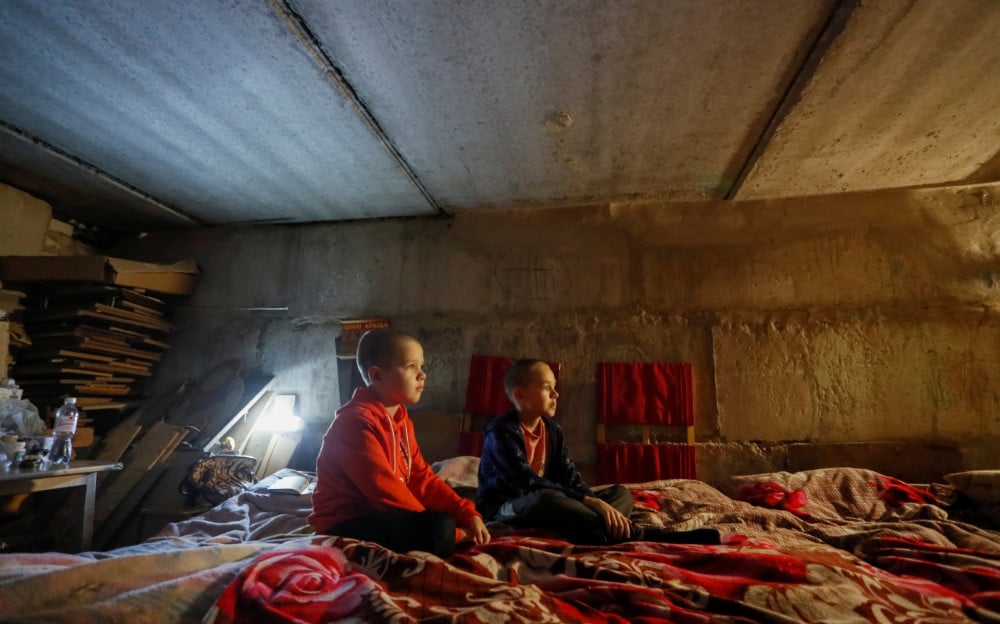Admit it: When it comes to our redemption, Jesus did all the heavy lifting … and carrying. Sometimes, all that’s asked of us is to say a kind word and show a little thoughtfulness.
But, hmmm, in our own time, in our own circle, perhaps those have become rarer. In this age, courtesy seems to have evaporated, and the flood waters of rudeness (or worse) continue to rise.
But perhaps, to a degree, it’s been that way since Cain and Abel. A dispute that could be mislabeled as carnivore vs. vegan. The brothers didn’t need social media to promote their viewpoints, and we don’t either. But boy oh boy, do we use them, and our rallying cry seems to be “never give an inch.” Forward, only forward. Onward, ever onward.
Or is it downward?
To say something even remotely kind to, or about, those “others” is giving aid and comfort to the enemy. It’s low, if not high treason.
But!
Being kind is pretty much exactly what Jesus asked his followers to do. Asks us to do.
For the love of God, for the love of neighbor, we’re supposed to be absolutely single-minded when it comes to showering others with honest, thoughtful, hit-the-nail-on-the-head compliments. Or, to use an expression that was popular some years back among parish teen groups: “Look for the good and praise it.” Not surprisingly, in youth-speak, it was translated to: “Put up or shut up.”
Lift that someone up or keep your big fat trap shut. In Jesus’ name. Amen.
And not surprisingly, God — always being God — has something in it for us when we do that. Which is: The road to heaven, your personal, trek and unique road to heaven, is paved with those tiny acts, those few, simple words. And you are its paver.
Or not.
Perhaps, for some of us, it’s more like our jungle trail to heaven. Those compliments and awareness of others are the stone and steel that sharpen the machete God has given us to slash and hack our way through earth’s tangled webs to paradise. To slice a hole in that veil of tears.
The image, the metaphor, doesn’t matter. What does matter is this: We can’t and don’t earn our way to heaven. But God gives us a role, wants us to contribute to our getting from here to there.
He asks us to do our part, knowing this whole time that he created us to do just that — in ways big and small. Knowing that at times we feel overwhelmed by the big and maybe too often overlook the small.
So let’s take a gander at it here:
- If we replace “small way” with “little way,” then — bing! — a woman in her early 20s may come to mind. A nun. A cloistered nun. A Carmelite. Enough with the hints: St. Thérèse of Lisieux, right? Right.
The Doctor of the Church who promoted “the little way.” The “Little Flower” with all that spiritual power. Among her amazing advice for us are these two reminders:
“Miss no single opportunity of making some small sacrifice, here by a smiling look, there by a kindly word; always doing the smallest right and doing it all for love.”
And: “A word or a smile is often enough to put fresh life in a despondent soul.”‘
It has to be said that God makes some of this getting-to-heaven stuff extremely easy.
- Now, turning to Scripture, because that’s always a good idea:
Old Testament: “Learn to do good” (Is 1:17). Here, practice reveals … an IHS shepherd’s (not a GPS navigator’s) directions to our perfect home-to-be in heaven.
New Testament: “And whoever gives only a cup of cold water to one of these little ones to drink because he is a disciple — amen, I say to you, he will surely not lose his reward” (Mt 10:42).
“Little one” has no age limit, because, in God’s eyes, we’re all his “children.” And that “cup of cold water” can be the warm greeting, the kind words, the acknowledgment of what they’ve been through or are still going through. Recognition, sympathy, empathy — three keys that can unlock those pearly gates.
And in case you missed it: “Whoever gives only a cup of cold water.” Only. Just that itty bitty act. Well done! And remember, Jesus was speaking to people who lived in a dry, hot land … cold water! (This taking place long before ice makers or freezers.) Your small acts are received like a free Slurpee in the middle of the Sahara.
- It’s not that God is tricky, it’s just that — at times — he gives us a two-fer. “Do this and you’ll also learn that.”
An adage on accumulating wealth advises, “Watch the pennies, and the dollars will take care of themselves.” The same holds true for reaching heaven. For paying attention and acting wisely on earth.
If we make those little compliments on a daily basis, if we’re aware of, and have respect for others, then we’re going to practice those same virtues in larger ways. It’s going to become who we are, how we think, the way we behave.
It’s no longer “us” and … “them.” Not “me” and … “everyone else.”
We’re not saving the world. (As has been noted by many, that position was filled and the job accomplished quite some time ago.) What we are doing is changing the world, in two ways.
First, we’re affecting the person we compliment. Brightening her day. Giving him hope.
And second, we’re changing ourselves. “Penny by penny,” becoming more Christlike.
Baby step by baby step, moving closer to full-blown heaven as we experience glimpses of it here on earth.
What a bargain!
Bill Dodds writes from Washington.
| Pope Francis on shining stars of kindness |
|---|
|
“We can choose to cultivate kindness. Those who do so become stars shining in the midst of darkness. “St. Paul describes kindness as a fruit of the Holy Spirit (cf. Gal 5:22). He uses the Greek word chrestótes, which describes an attitude that is gentle, pleasant and supportive, not rude or coarse. Individuals who possess this quality help make other people’s lives more bearable, especially by sharing the weight of their problems, needs and fears. This way of treating others can take different forms: an act of kindness, a concern not to offend by word or deed, a readiness to alleviate their burdens. It involves ‘speaking words of comfort, strength, consolation and encouragement’ and not ‘words that demean, sadden, anger or show scorn’ (Amoris Laetitia). … “Often, nowadays, we find neither the time nor the energy to stop and be kind to others, to say ‘excuse me,’ ‘pardon me,’ ‘thank you.’ Yet every now and then, miraculously, a kind person appears and is willing to set everything else aside in order to show interest, to give the gift of a smile, to speak a word of encouragement, to listen amid general indifference.” |







